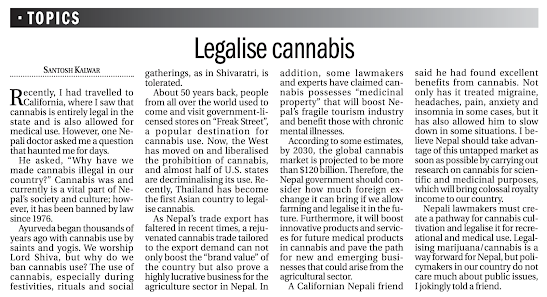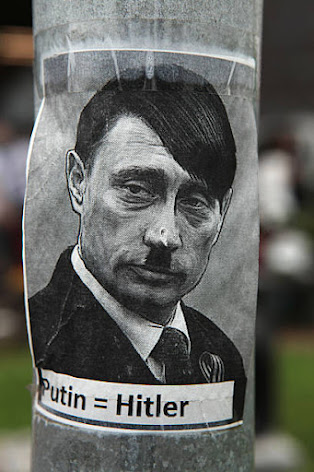Many people oppose the idea of a king, believing it would be an
exercise in oppression and a restriction of rights. People should decide
if they want a king
After the statement released by former King
Gyanendra Shah on Democracy Day, KP Sharma Oli said, "Gyandendra Ji is
in a dilemma. In the last 240 years, kings and monarchy did nothing for
the nation. Did they develop in comparison to the Scandinavian nations
or other nations..."
Oli is right, Nepal was not like a Scandinavian nation back
then, nor will it ever be. The development made by the monarchy when
King Mahendra was in power can never be compared to the development
these political parties have made in the last 30 years.
The
nation's political parties, including the Maoist, CPN-UML and others,
have done excellent work by looting the nation's treasury and robbing
banks and financial institutions, beseeching in front of foreign powers
and diplomats.
Thousands of widespread scandals, which the biased
Nepali media will never write about since most of them are partly funded
by these parties.
Nepal has been ruled by a hereditary monarchy
for centuries, but with tremendous changes and upheavals in recent
decades, the question of whether or not to keep the king is a source of
debate. On the one hand, some people argue that a king provides
much-needed stability, continuity and a sense of national identity to
Nepal. They claim monarchy symbolises national unity and is a bridge
between the country's past and present. Additionally, they say the
monarchy has traditionally provided stability and continuity, allowing
the government to maintain its cultural identity and traditions and
unify the country despite ethnic, linguistic and religious differences.
On
the other hand, many people believe that the king's power is no longer
necessary and could even be damaging to the country's progress. No
matter which side of the debate one falls on, the question as to whether
the monarchy will benefit the country or not is complex and
challenging.
Nevertheless, the decision will ultimately shape the nation's future, and all voices must be heard before reaching a conclusion.
Many
people oppose the idea of a king in Nepal, believing it would be an
exercise in oppression and a restriction of rights. However, the people
of Nepal should decide if they wish to have a king and what form of
government they desire.
The monarchy is a relic of a past era. Its
continued existence is seen as a sign of inequality and subjugation of
the less fortunate. But ultimately, the people should be the ones to
decide what type of government will best represent their interests.
The
debate over the necessity of a king in Nepal has been intensifying in
recent years. The abolishment of the monarchy in 2008 and establishment
of a secular and democratic republic resulted from a popular movement.
Despite this, the presence of a royal figure has been integral to the
government and politics of countries like Denmark, Sweden and the United
Kingdom for centuries.
While the role of a king can signify power
and prestige, it can also be beneficial in specific contexts. For
example, a king's special forces may influence the nation's direction
and shape the country's future.
As the discussion surrounding the
need for a king in Nepal continues, it is crucial to consider the
implications of such an appointment and its potential benefits to the
country.
Recently I visited Denmark, a Nordic country, where I saw
that the Queen was an important figure in the government. She was seen
as an important figure in Danish society, and the Danish monarchy is one
of the oldest in the world.
Queen Margrethe II (born 1940) has
been Denmark's reigning monarch since 1972.She had the power to appoint
government officials, sign legislation, and even declare war. She is
also seen as the head of state and a symbol of national unity.
In
Sweden, the King, Carl XVI Gustaf, had a similar role. Still, the focus
was more on the economic and social aspects of the country.
In
addition, he can appoint government officials and sign the legislation.
In the United Kingdom, King Charles III was more focussed on the
symbolic aspects of the country. He was seen as the head of state and
was responsible for unifying the country and leading the nation in times
of peace and prosperity.
The King can appoint government officials and sign the legislation.
These
examples of kingship provide an interesting comparison to Nepal, which
has a long history of the monarchy. Still, the current political system
is a democratic republic. Nevertheless, many pundits and experts believe
it was bought by the influence of the 12-point agreement signed in New
Delhi.
Is it possible for Nepal to benefit from a monarchy? After
all, the country has a deep-rooted history of kingship. Moreover, a
monarch could bring a sense of national unity and economic and social
stability.
Nepal is facing a tumultuous political climate, and it
may be time to get back the king. Not only would the king provide strong
leadership, but he could also act as a symbol of unification, reminding
the people of their shared values and history.
Perhaps, the
monarchy could help protect the nation's forests, resources and culture,
providing fast economic growth and a development environment.
Subsequently, the monarchy could bring stability and a greater sense of
continuity while at the same time promoting democratic principles.
Ultimately,
the monarchy may be the key to Nepal's success and a way to reaffirm
its place in the world. The rule of the king in Nepal can bring many
advantages to the country.
Nevertheless, collaborating with the current political parties would be a challenge.
Giving
citizens a system of governance open to their input allows them to
express their opinion and help determine their nation's future.
Furthermore, this system enables the open exchange of thoughts and
encourages people to participate in political activities.
Ultimately,
it is up to the Nepalis to decide on the direction of their nation,
independent of any external influence or agreements.
Published: The Himalayan Times
Nepal's leading daily newspaper


















